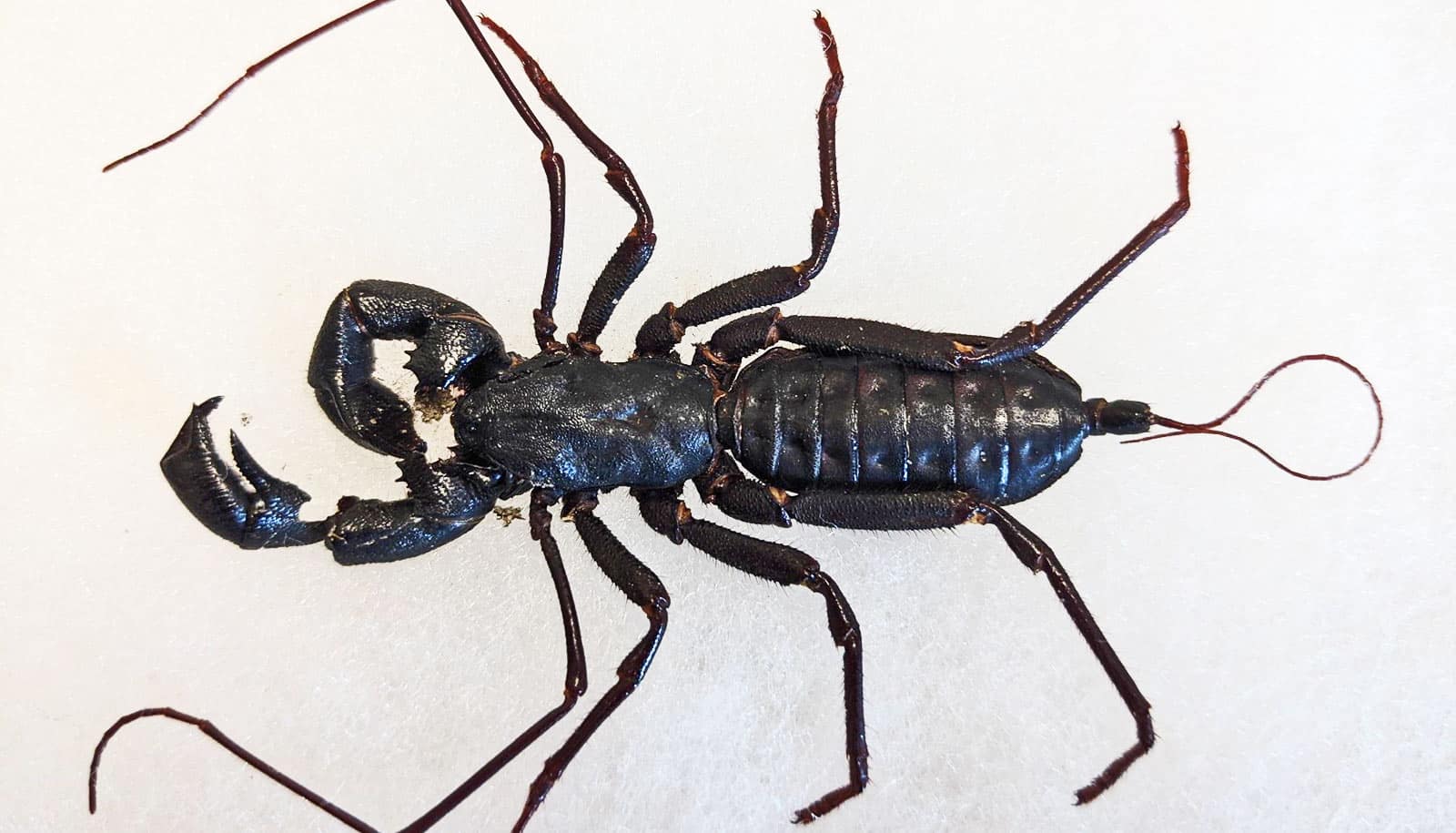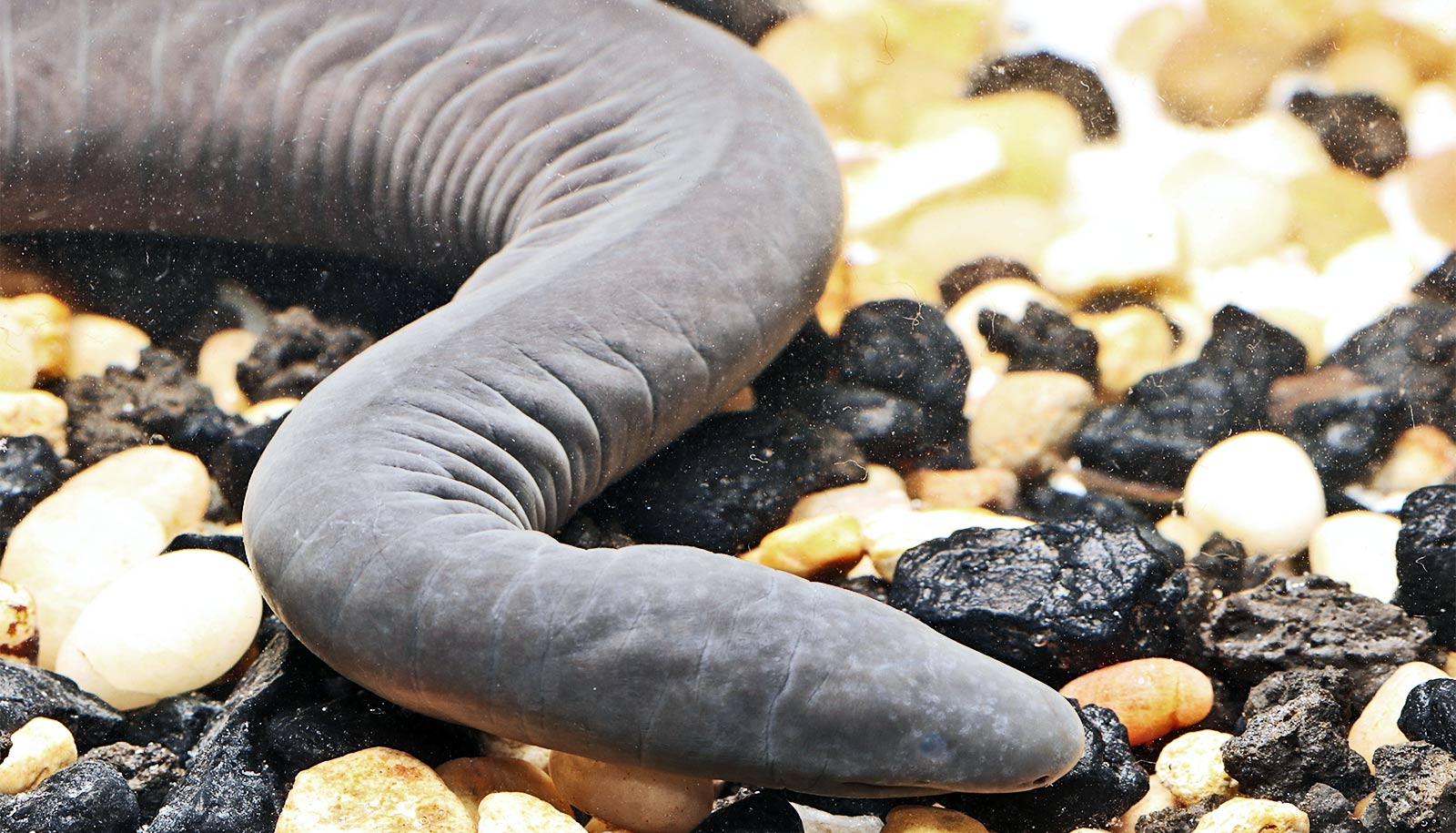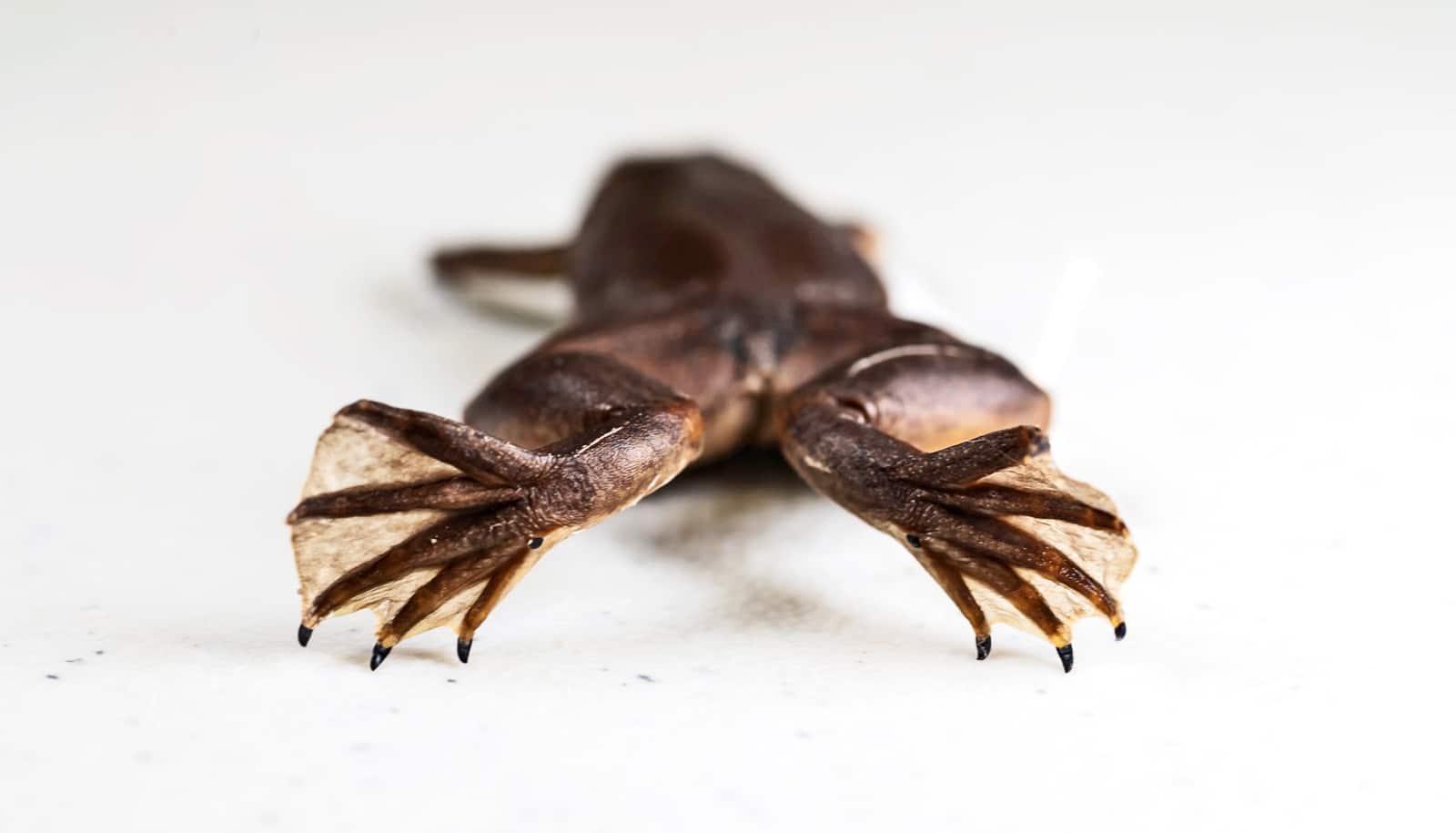The giant whip scorpion has been turning up in the news lately—and getting some undeserved bad press—according to an expert.
Although the arachnid can spray acid when bothered, concerns over its potential to harm people, pets, and the environment are misplaced, says William Kern, an associate professor in the department of entomology and nematology at University of Florida Institute of Food and Agricultural Sciences Fort Lauderdale Research and Education Center.
In a recent online article, Kern and a coauthor offer a closer look at the giant whip scorpion. In addition, Kern offers the following seven pieces of information about the creature:
Are giant whip scorpions dangerous to humans and pets?
No. They are neither venomous nor physically hazardous. They can give a mild pinch with their pincers (pedipalps). Most mammals and birds will not eat them because they are distasteful, but not poisonous.
Are giant whip scorpions considered invasive to the environment?
The Florida giant whip scorpion is native to Florida. In 2018, the Florida population was elevated to a species rather than a subspecies.
Where are they most likely to be found in Florida?
The Florida whip scorpion lives in deep, well-drained sandy soils like long-leaf pine sandhills, sand pine scrub, coastal, and relict dunes. They may have burrows, but often just burrow under logs and boards on the ground. Their population has been declining due to habitat loss and over-collecting for the pet trade.
Your article states that the species will bite under certain conditions. What are these conditions? Is the bite painful and venomous?
I have never been bitten by a whip scorpion. They will try to defend themselves by pinching you with their pedipalps. It is a mild pinch, like being bitten by a small anole (lizard). They are considered harmless to people and pets.
One of the facts reported in the article is that it can spray acetic acid. What condition causes this giant whip scorpion to do so and what do I do if one sprays me, a family member, or a pet?
This is a defensive behavior and they spray a fine mist of acetic acid (somewhat stronger than food grade vinegar) at predators that get too close. The spray can sting the eyes and irritate the nose and doesn’t taste good. It comes from two pores at the base of the “whip.” They are actually pretty accurate with the spray. On skin it usually does no harm, but just wash the exposed skin with soap and water before you touch your eyes. If it gets in your eyes, flush them with clean water.
If I find one on my property, is there a likelihood that there are others? If so, how do I get rid of them?
It is possible that if you find one, then your property is the right habitat for them, so there may be more. Why get rid of them? They are harmless, eat cockroaches and millipedes, and they are cool.
Do people have these species as pets?
Unfortunately, they are sought as pets, but they rarely do well in captivity. Collection for the pet trade has had a negative impact on most populations, especially in Florida. Appreciate them in the field then leave them in peace. They are very photogenic, so you don’t need to collect them.
Source: University of Florida


